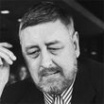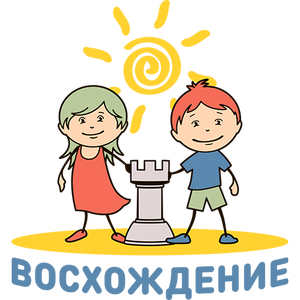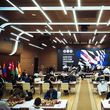Person of day - 6 JULY 2023
JAN HEIN DONNER

Johannes Hendrikus Donner was born on 6th July 1927 in The Hague. Hein learned to play quite late, at the age of eight, but he was already a decent player after six months, when he put on a respectable performance against ex-world champion Max Euwe, who left Amsterdam with his family during the War.
“At first, Hein wanted to study medicine, but later opted for law, thus following the family tradition. In Amsterdam, he was unleashed towards the end of the 1940s: a fairly relaxed studying schedule, time for hobbies, sleepless nights, famous Amsterdam cafes, unending discussions about all and sundry and, of course, chess.
Chess played a major part in the life of the young student. Rumours of Hein spending days and nights in cafes when he should have been studying the finer aspects of Roman law reached his parents, but Hein defended himself by saying that all Donners were masters- that was the title given to graduates of the law faculty of a Dutch university. He, meanwhile, intended to become a grandmaster!” (G. Sosonko)
Donner quickly rose to the foremost positions of Dutch chess. He won 9 points out of 9 in a reserve group of masters in Beverwijk before sensationally winning the tournament in Hoogoven in 1950, overtaking Max Euwe and other invited superstars.
“At that time, Donner proclaimed himself the first professional chess player in Holland, but he was earning very little. Prizes for tournaments were not very high; plus, he could not rely on them forever. Hein’s main source of income was sessions in simultaneous chess exhibitions and columns in newspapers and magazines. He also supplemented his income with blitz matches in cafes, where the betting stake was a quarter of a gulden. At that time, no one remotely considered a professional career; even Euwe often played in tournaments where the prize was a set of silver spoons.” (G. Sosonko)
From 1950 onwards, Donner had played for Holland at Olympiads, progressing from substitute to team leader. In 1976, Timman, Sosonko, Donner and Rhee brought the Dutch team second place at the Tournament of Nations. In 1955, Hein qualified from the European zonal tournament for the inter-zonal. In the 1950s, he also won three national championships and became the second Dutch grandmaster in 1959.
At the 1963 super-tournament in Hoogoven, Donner overtook Bronstein, Parma, Pinlin, Ivkov, Averbakh, Stahlberg and other leading grandmasters. In 1967, at tournament in Venice, Hein surpassed world champion Petrosian and several notable Western European grandmasters. The Dutch grandmaster has also defeated and drawn with world champions Max Euwe, Mikhail Botvinnik, Vassily Smyslov, Tigran Petrosian, Boris Spassky and Robert Fischer. Donner only failed against Mikhail Tal and Anatoly Karpov. At the start of the 1960s, Donner worked for IBM, but his romance with computer science was short-lived.
Later on, Donner was a chess journalist, writing for multiple Dutch media outlets and editing the Chess Bulletinbetween 1971 and 1984. In 1970, he came second in Leiden, where he competed against Botvinnik, Spassky and Larsen Hein.
“He was very attentive and he had a gift for improvising and making his tale seem like a real one. He could give a precise account of events and if there were none, he could make them up. Hein was a master of invention, mastering the art of logical thought, which reflected the confidence of a hero in invented circumstances.
At the same Olympiad in 1974, I played for his country for the first time. Donner announced that Sosonko’s integration into Dutch chess signified the arrival of the first true professional: in former days, everyone wanted to play and all six players tried to fill the four team sports, whereas now, when the traditional question of omitting someone arises and a chess player volunteers, Genna replied that he had nothing against it…
It would be incorrect to assume that reporting was always happy and carefree. Very often, his pen was what it was in Roman times- a sharpened pencil for writing and a murder instrument. There were many men who could not hear Donner’s name without clattering teeth. He often wrote with spite and irony and few in the chess world escaped that. Only Euwe remained THE “grandmaster, omnipotent and great.” They played many games, but Donner never beat Euwe in a single one.” (G. Sosonko)
In 1983, Donner survived a blood-stoke and was paralysed. He refused neurosurgery and learned to type with one finger. For the last three years of his life, he published columns for the NRC Handelsblad, which were then combined into two books titled Written After My Deathand Bad News for All. Russian-speaking chess fans can read Donner’s essays in Sosonko’s book, Dialogue with the Chess Nostradamus.
Nonetheless, on 27th November 1988, death overcame the grandmaster’s thirst for life. A bridge is named after Donner, which leads to the Max Euwe Square in Amsterdam.





















